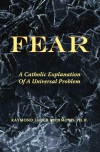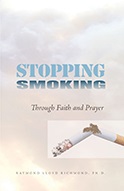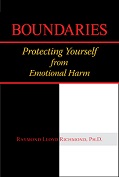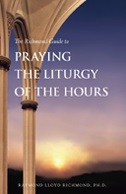|
|
|

I have been a Christian
(now Catholic) for about 15 years and have experienced a lot of emotional healing compared
to where I was before, which was a deeply unhappy almost-alcoholic with a history of disastrous
relationships. Today I am a lot better after many years of prayer and seeking God, but I still
carry substantial emotional pain and I am hoping for a breakthrough.
My family was not Christian and was very dysfunctional, which had been
passed down the generations. My parents were narcissistic, emotionally abusive and neglectful
and sometimes physically abusive. They had few friends or family so I had little support from
adults and so was very isolated and unhappy as a child. I left home with no ability to discern
my own emotions, other than intense rage/pain when it surfaced, or to have closeness with people,
and I had successive brief romantic relationships that were incredibly painful when they ended. I
find attachment theory helpful to understand my issues—I am both very anxious to have an attachment
and am avoidant of attachment: a “fearful avoidant”, which is a pretty miserable place to be.
Through much painful work I have dug down and exposed intense hatred, anger,
rage and wishes for revenge towards my parents. I have tried to express this in writing and in
prayer and I think it has lessened, but it is still there. My feelings of intense pain at abandonment
and rejection come up whenever I am in a romantic relationship.
I know I have deep and intense longings for love—for attention, for positive
regard, for time, for physical affection, that have existed since I was a child. This can make
me needy and tearful in a relationship and ultimately selfish—God has been showing me the difference
between this and real love. And yet I still have that need, and it often overrides my behaviour
and good intentions, as it is powerful and overwhelming.
Sometimes I connect with God’s love and it is a blessed relief. Yet somehow it
doesn’t stop me getting into relationships with very avoidant or narcissistic men who are neglectful
and abusive. In the last one, it was obvious that he was not capable of being kind, caring or
supportive, he even warned me of this, but I was so attracted to him that I went on regardless, and
unsurprisingly it has ended with a lot of pain. I am very tired of being lonely and really want to
heal further.
 |
 ou have done good work in trying to face
the emotional wounds inflicted by your parents. Yet, like many
people, you have encountered the fact that something is still missing in the healing work.
Nevertheless, even though it has been missing, your description of things has pointed to it;
that is, because the problem has “existed since I was a child,” the solution to the problem
requires thinking like a child rather than as an adult. Thus what has been missing in your
healing journey so far is your ability to see things as a child sees them, with imagination
and awe, rather than make constant attempts as an adult to solve the problem with adult methods
of logic, reason, and control. ou have done good work in trying to face
the emotional wounds inflicted by your parents. Yet, like many
people, you have encountered the fact that something is still missing in the healing work.
Nevertheless, even though it has been missing, your description of things has pointed to it;
that is, because the problem has “existed since I was a child,” the solution to the problem
requires thinking like a child rather than as an adult. Thus what has been missing in your
healing journey so far is your ability to see things as a child sees them, with imagination
and awe, rather than make constant attempts as an adult to solve the problem with adult methods
of logic, reason, and control.
The Problem with Romantic
Relationships
Consider, then, that
romantic relationships are
really just an adult method to try to acquire the experience of being given the attention,
positive regard, time, and physical affection that you as a child needed from your parents.
Furthermore, because your parents were abusive, you unconsciously have been seeking relationships
with which you are familiar: abusive relationships. Following the path with which we are accustomed
is a common human tendency; in some cases it can work well, as in following the same route when
traveling from one destination to another or in following the same routine when doing chores.
In cases of psychology, however, the tendency to follow the path to which one is accustomed can
be a stifling impediment that leads to disaster. For example, someone might constantly get angry
when encountering a frustrating obstacle, rather than surrender to God and ask for help in
enduring and solving the problem; or, someone might constantly seek comfort and companionship
from an abusive person when feeling the distress of being alone, rather than seek prayerful
connection to God. Such tendencies are behavioral patterns that easily lead to psychological
dysfunction.
As a Child Sees Things
Therefore, at this point let’s look at things as
a child sees them. A child will see only the aching need for something, the fear of not having
it, and the desperation to get it.
In this desperation the child will not consider danger because the child cannot
comprehend danger. Essentially the child will run—often recklessly—to whomever or whatever
holds out the promise of attention, positive regard, time, and physical affection. This is why a
child will get into a car with a complete stranger who offers candy. The (seeming) promise of a
“friend” will override all prudence.
If you can understand this tendency of a child to
run to a “friend,” then you can understand your adult behavior. You run to men, especially
abusive men, because a child part of you sees only the hope of a “friend.” It’s the child part
of you, not your adult reasoning, that gets you into trouble. When led by the child’s desperation
for affection, you would likely jump into bed with the devil himself if he smiled at you.
So let’s say that again: When led by the child’s
desperation for affection, you would likely jump into bed with the devil himself if he smiled at
you.
The Fullness of Healing: Ego States
Consequently, for the fullness of your healing it
will be necessary to consider what has been missing so far: your ability to consider the child’s
fear and desperation while also providing parental guidance to that child. It may sound odd, but
for you to heal from the wounds afflicted on you by your parents it will be necessary for you to
learn how to be a parent to your own inner
children.[1] When a
child gets fearful and desperate, you can say to the child, “I understand how much you want a friend.
I understand that you are afraid, and this person who seems to be a friend is really
dangerous for us, so I won’t allow us to get involved with him. Instead, I will show you where there
is real friendship: in God’s love.”
|
A common problem for many persons
is the same problem that can afflict you: rather than governing your ego states with wisdom,
you can let the ego states govern you.
Note that the danger of this blunder
can be severe. Some consequences of letting your ego states govern you can be anger, victimization,
depression, anxiety, self-sabotage, procrastination, paranoia, suspiciousness, and persistent
health problems. |
|
Hence, the task of healing is to face and accept the
emotional pain of your childhood. The lack of attention, positive regard, time, and physical
affection were constant painful wounds of your childhood that you suppressed with your desperation
to find acceptance from others. Essentially, you grew into adulthood while leaving the wounded child
parts locked in an emotional prison and languishing in torment. If you listen to them now and accept them,
they will be freed from their prison and will start to grow. They won’t grow up as an actual child grows
up, but they will grow up into contented child parts of you who, with childlike wonder and
delight (rather than with anguish and distress), will share all of your adult activities and
relationships with you.
So, rather than your trying to connect with God’s love
as an adult still separated from your childhood pain, listen to the child parts within you, allow the
parts to cry, and then show the parts how to pray with you. Be a parent to them. Teach them and show
them how to connect with God’s love just as a good parent would teach actual children.
Attending to Your Ego States
Below are some suggestions for making and maintaining
communication with your ego states. Be especially careful to let the child states know that you are
not afraid of them and that you will not reject them regardless of their conduct.
• |
Prayer. As with
all life changes, start the change by praying for it, because if you really want something, you
will be asking for it constantly. So pray daily for the courage to face a child part’s pain
and listen to it. |
• |
There can be several ego
states in a person. The most common ego states are the ones who hold early
childhood emotional pain deriving from the various stages of emotional and intellectual development
of childhood; i.e., infancy, early childhood (2–4 years old), middle childhood
(5–7 years old), later childhood (7–10 years old), and late childhood
(11–12 years old). Common childhood states are the helpless and frightened one, the
angry one who sees everything as unfair, the rational one who tries to use thinking to avoid
emotional distress, and the one who clings to self-hatred for being unable to make things get
better. Also common is a teenage ego state who holds the frustration and rebelliousness of a
lost and confused teenager trying, without guidance, to find a place in an adult world. There
can also be ego states that derive from associations with family members as well as other
influential persons in your life. In short, getting to know yourself really is a matter of
getting to know the truth of your personal history. |
• |
Severe headaches.
Some severe headaches, which are often perceived as migraine headaches, are really an indication
that an ego state is in distress about a current event and wants to speak about the emotional
pain that is similar to some emotional pain you lived through in your childhood and that is still
a troubling part of your life. Thus, a headache can be much like a child in school raising his or
her hand, saying, “Call on me!” So, if you have a headache, say, “Okay, who wants to speak?” Then
listen carefully. You might be surprised at what you hear. If you don’t hear anything, be patient;
if you still do not hear anything, then maybe the headache is “just a headache.” |
• |
Seek to develop an ego state
of Wisdom. It’s important to have one ego state who, from a place of superior wisdom,
can assert command over all the others so as to direct them into virtuous behavior and prevent
them from governing your life with frantic demands for immediate satisfaction. Accordingly,
this ego state must seek to study and be familiar with Church doctrine, healthy parenting, and
moral behavior. |
• |
Be careful not to identify
with a child part’s feelings. Whenever you listen to the child part or just feel the
child’s pain, remember that the child part is a part of you and not the entirety of your
being. It’s somewhat like using a computer: you may be using a word processor application, but
it is not the only application on the computer; if you make the window smaller, you can see that
other applications are available. Thus, however intense the child part’s pain may be, it belongs
to the child, not to all of you; that is, the pain of the child part is just one “window” of your
entire being. The child part is depressed, not all of you; the child part is angry, not all of you.
If you keep this in mind, you will be able to listen to the pain of the child part, but you can
receive it and understand it with an adult wisdom, especially the wisdom that comes from the Catholic
faith. Then you can say things such as, “Yes, it hurts, and it seems overwhelming. Yet you don’t
have to be afraid. Together we can get through this. I can guide you and protect you as you heal
from your pain.” |
• |
Demonic “kidnapping”.
Just as innocent children can be kidnapped by strangers who offer candy to the children, child ego
states can be “kidnapped” by demons. That is, to children, candy is desirable and fun, so when
a child is lured into a car by a stranger, the child will see a “friend” offering fun, not
danger. In a similar way, adults can be drawn into sin by demons who deceive a child ego state
of the adult into believing that the demon is a friend who is offering fun and pleasure.
Consequently, even if the adult attends Mass and has access to the Sacraments, the adult can
still be drawn into sin by demonic influence working through a child ego
state who is motivated solely by pleasure, not by love for God. In such a case, it will be
necessary for the adult to learn and practice self-discipline as a way of serving God, and then
teach self-discipline to the child ego states. |
• |
Teach self-discipline.
In dysfunctional families, parents will commonly manipulate a child with bribery; that is, in order
to keep a child quiet, they will give the child material things that the child has not earned
through personal effort. The psychological result of this bribery is that the child will not learn
the discipline necessary to set goals and work to achieve them. As an adult, such a person will
often encounter opposition to productive work, to
household cleaning, to using restraint with such things as
food, alcohol, and caffeine, and to avoiding harmful things such as
tobacco and drugs. The child part will demand, “I want what I want and I want it now!” It will
yell, “No! Don’t tell me to wash the dishes!” Or, “I want chocolate cake [or a cigarette or a glass
of wine or marijuana]! Don’t tell me I can’t have it!” Or, “I need
pornography and
masturbation! They’re my friends! You can’t deny them to me!”
Now, the problem here is that if you give in to the demands of the child part, you will be
inflicting onto yourself the same damage that your parents inflicted on you: a failure to teach
self-discipline. Thus it will be important for you, as a gift of love, to teach the child
part two aspects of self-discipline. First, that some things (such as overeating, tobacco, nicotine,
drugs, and masturbation) are wrong and for psychological and spiritual health must be avoided.
Second, that care of the self and the environment are necessary for psychological and spiritual
health and can be accomplished with goal setting and reward; that is, “If we can clean the house
and finish the business project, then we can [do something fun].” |
• |
Memories of the past.
In everything you do, there will be memories of the past connected with current activities. Note
that these memories have two aspects: an innocent suffering in silence, which characterizes
early pre-verbal childhood, and a learned angry reaction to injustice, which characterizes
later childhood. Therefore, when these memories come to mind, it will be important for the wise, adult
part of you to say to the child ego state, “Go ahead, let your tears speak. In the past, you were
frightened, alone, and helpless. But I am with you now, and I will show you how to get through the
pain without falling into complaining, anger, and revenge.” |
• |
Writing. You can
use writing to get to know a child part. It’s best to use handwriting, as in a journal, rather
than a computer. First write a question to the child part. Then relax, prayerfully calm your mind,
and allow the child to speak through writing. As you get accustomed to the procedure, you can
communicate with the child part on a regular basis; use this procedure to allow the child part to
tell the story of the past and speak about emotional experiences, both about the past and about
all things in the present. |
• |
Meditation. In
addition to writing, you can communicate with a child part in meditation. This is an
imaginative process whereby you sit quietly, enter a prayerful, relaxed state of mind, and
visualize scenarios in which you interact with the child part. In this process you can learn
from the child, and the child can learn from you. |
• |
Daily events.
Important characteristics of a child are a sense of awe and wonder as well as a sense of
fear and confusion. So in all the things that you do on a daily basis, be aware of any child
part’s perceptions. You might be walking to get somewhere, but a child part might notice a butterfly
on the flowers. You might be praying the Rosary, but a child part might be more interested in playing
with the beads. You might have to do work, and a child part might feel bored and want to play. You
might have to go out at night, and it may not cause any distress to you, but a child part might be
frightened of the dark. You might have to provide a service to someone that is simply mundane, but
a teenage part might feel oppressed by authority. It can go on and on. The basic idea is to be
always aware of other ego states, rather than be preoccupied only with your adult conscious thoughts.
And then, go beyond simple awareness: learn to be curious about a child part’s perceptions and
“talk” about them as an aspect of understanding, guidance, and protection. |
• |
Pay attention to your
dreams. When reviewing any
dreams that you
remember, keep in mind that all the various characters in a dream can refer to parts of yourself.
Thus if you dream of children, it could be telling you something about the child parts of you. Be
curious about that, and be willing to talk about it with the child parts. |
Cooperating With Your Ego States
As you get to know your ego states, you will
realize that each one has a particular talent. There can be a gentle one, a firm one, a
suspicious and cynical one, a wise one, a creative one, a contemplative one, a focused one,
an intuitive one, a practical one, a risk-taking one, a cautious one, an authoritative one, a
cooperative one, and so on. Whatever ego states you might have, allowing each ego state to have
a proper place in your daily life is essential to your mental and spiritual health.
Notice, though, that ego states can’t function
all at once. Just as a chef, for example, may have various tools—such as measuring spoons
and cups, knives, bowls, mixers, blenders, and so on—each tool has a specific purpose
and specific time to be used. Knowing your ego states, therefore, will allow you to benefit
from the specific talent of each one as it is needed.

Notes.
1. This term “inner child” is often a cliché in modern
psychology; technically, the “inner child” is an ego state. See my webpage about
Personality and Its Disorders for more information about
ego states.


Healing
|
Though
Demons
Gloat
|
Anger
&
Forgiveness
|
Falling
Families,
Fallen Children
|
Disasters
and
trauma
|
Psychology
from the
Heart
|
 |
 |
 |
 |
 |
 |
Psychological Healing
in the Catholic Mystic tradition |
True Christian
Identity
In Confronting
Evil |
How to Turn the
Emotional Wounds
of Daily Life Into
Psychological Growth. |
The Psychological
and
Spiritual Remedy
For Our Cultural
Disintegration |
The Struggle For
Psychological
and Spiritual
Growth |
Collected Texts
About the Spiritual Depth of
Clinical Psychology |
More information |
More information |
More information |
More information |
More information |
More information |
Desire
and
Distraction
|
Fear
|
Stopping
Smoking
|
Borderline
Personality
Disorder
|
Catholic
Compassion
|
Reverence
for the
Holy Eucharist
|
 |
 |
 |
 |
 |
 |
A Catholic Perspective
On Behavioral Change
and Its Subversion |
A Catholic Explanation
Of a Universal
Problem |
Through
Faith
and
Prayer |
Healing
the
Rage |
When They Tell You
That the Moral Teachings of the
Catholic Church
Are Wrong |
Reverent and
Proper Conduct in
a Catholic Church |
More information |
More information |
More information |
More information |
More information |
More information |
|





















